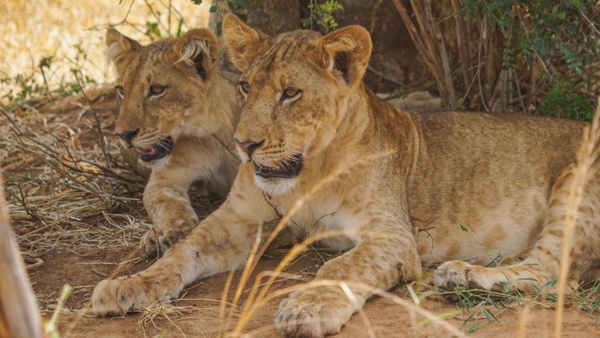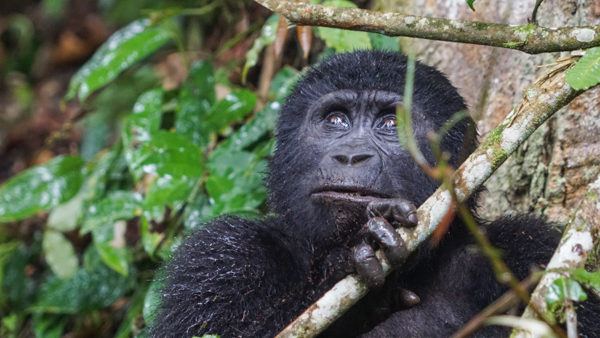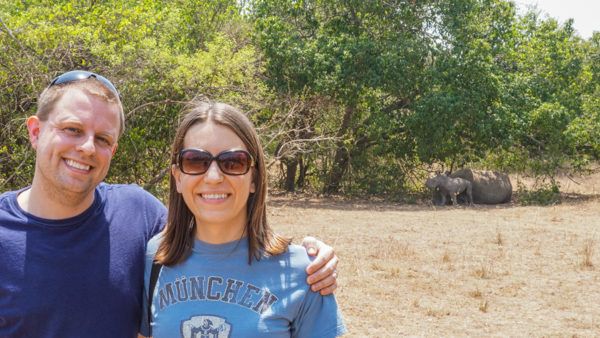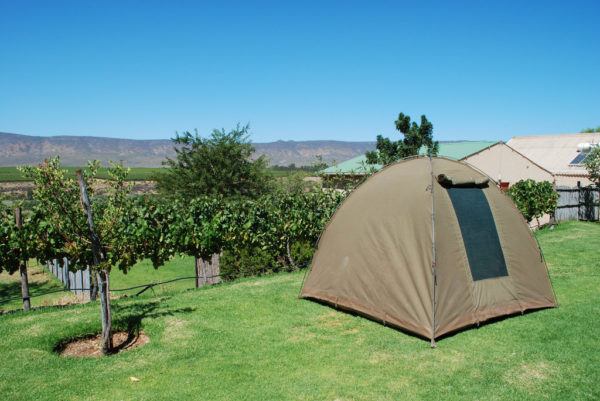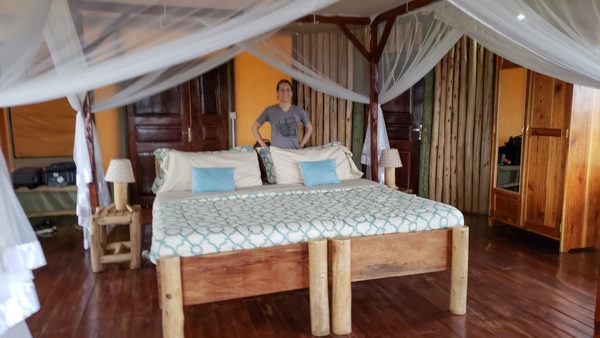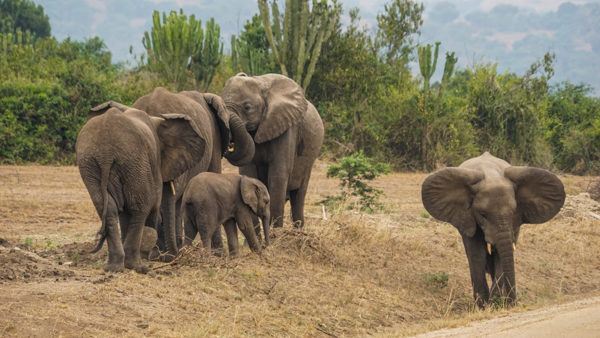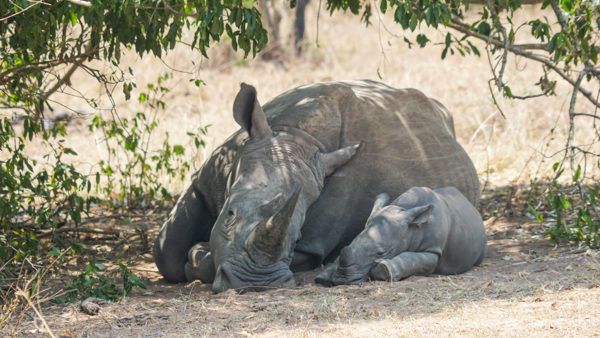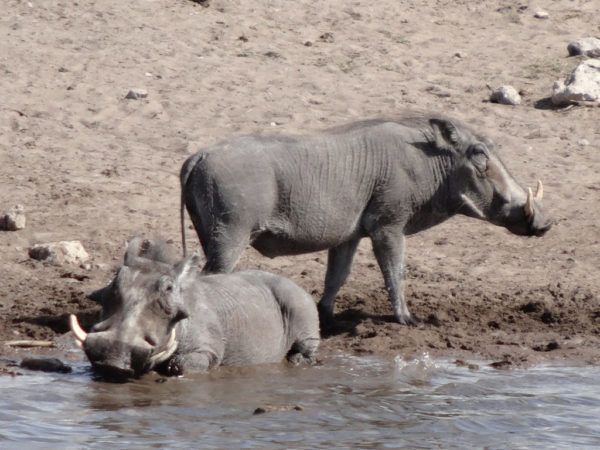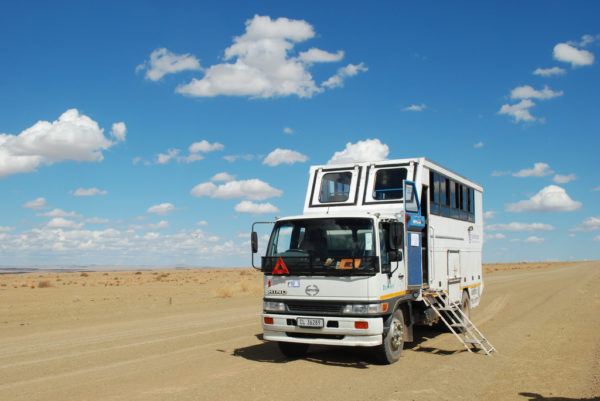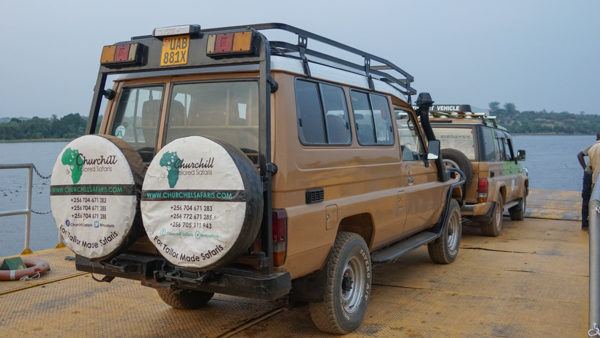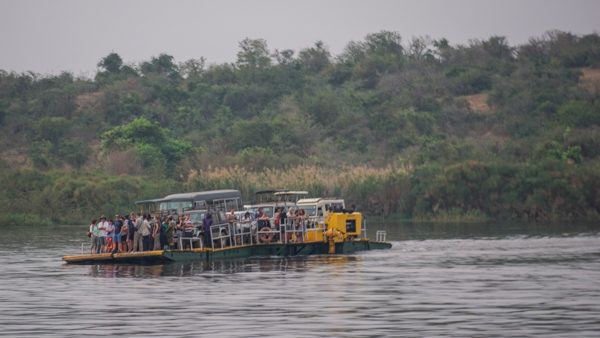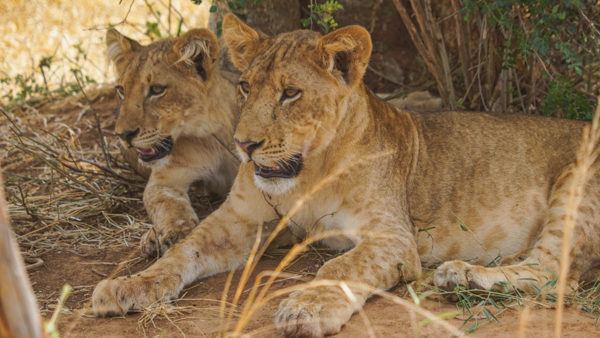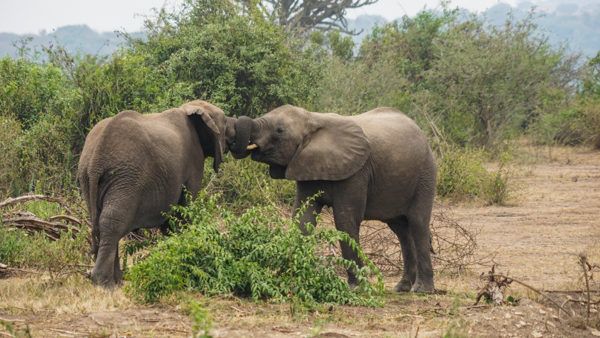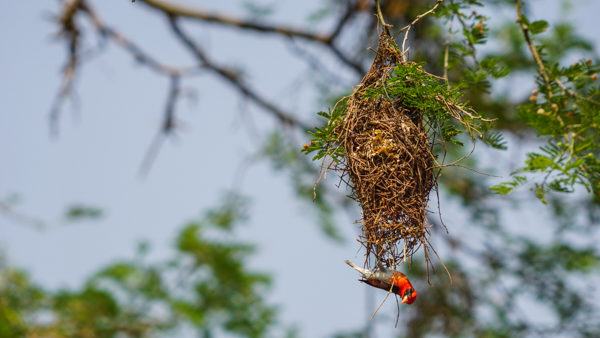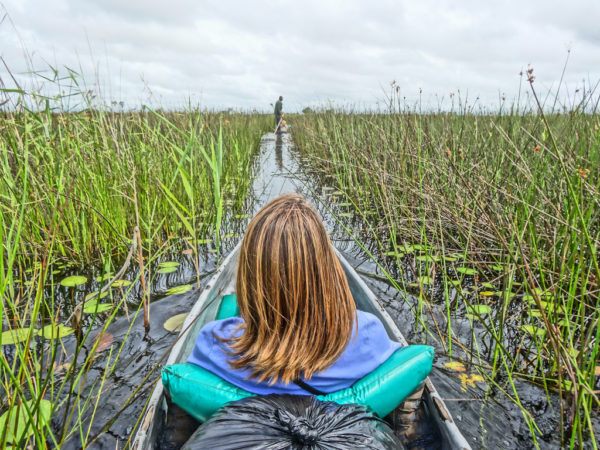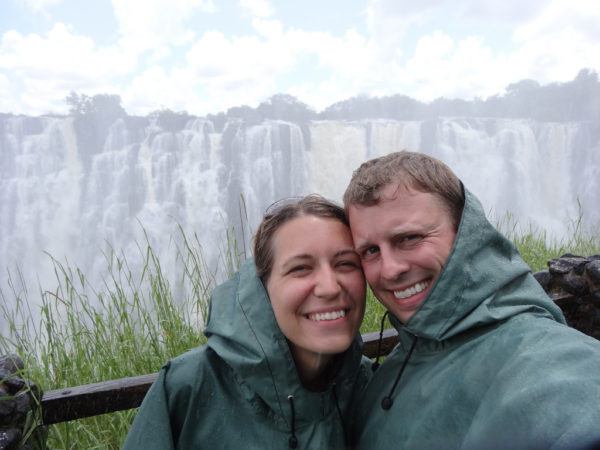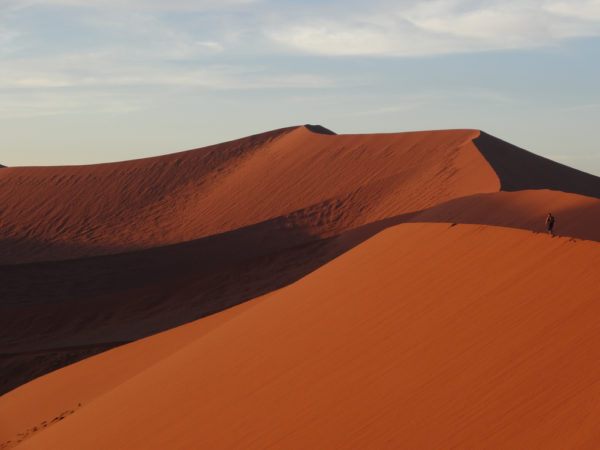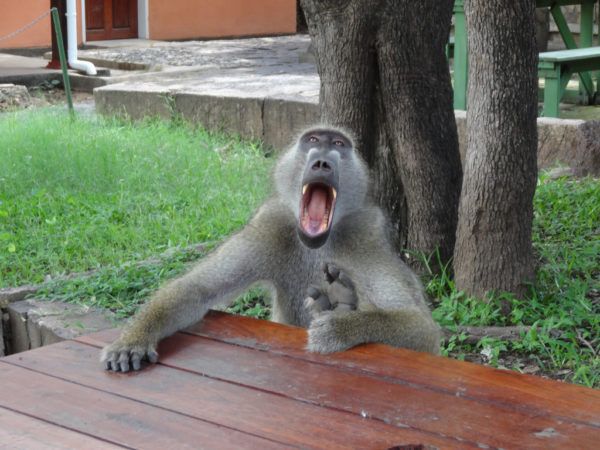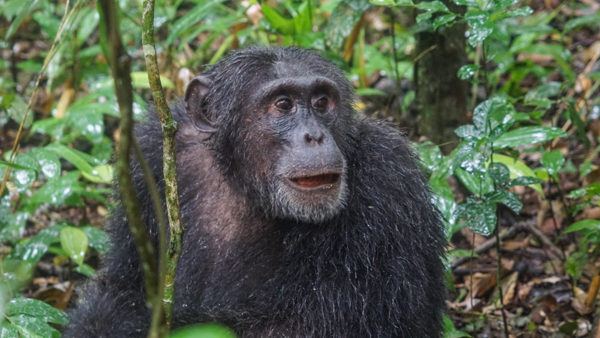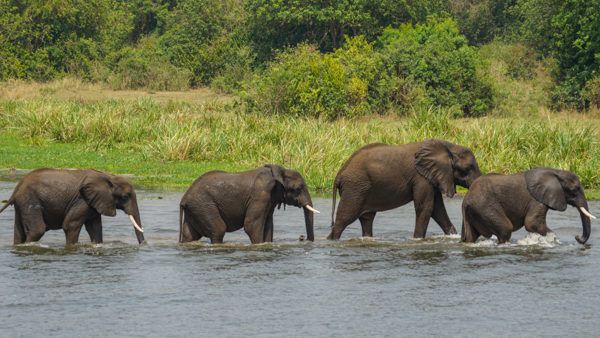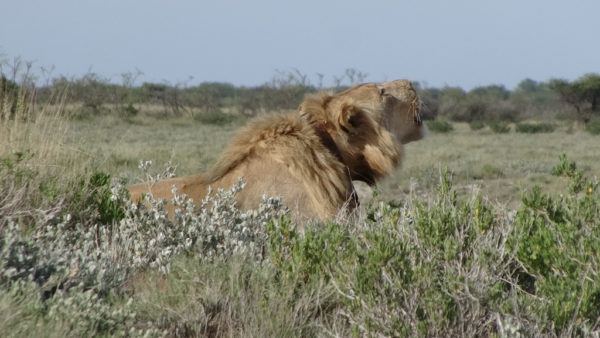Published by Jeremy. Last Updated on July 11, 2022.
Disclaimers: Our site uses demographic data, email opt-ins, display advertising, and affiliate links. Please check out our Terms and Conditions for more information. Listed prices and attraction details may have changed since our visit and initial publication.
We've spent nearly six weeks on safari in Africa over the last few years, and during our travels we've been on low budget group tours to high-end private tours with vastly different experiences.
But when it comes down to it, while most of your experience in Africa is dictated by the local conditions on any given day, there are a few things you can do to ensure you have the best safari in Africa.
Today, we wanted to share six of our favorites we learned over the years.
1. Book With the Right Company (and Itinerary)
Our first point may perhaps also be the most important (and the longest). Booking with the right company and Africa safari itinerary can make or break your trip.
Why is that? Well, there are a number of reasons.
First and foremost is that every company is different. Some are known for their prices, others are known for their guides, some have unique itineraries, some are private while others are group tours, and some companies offer custom tours while others have fixed itineraries.
Likewise, the guides at one may be friendlier with local rangers than others, and some may even have access to premium lodges or special permits that are hard to book otherwise.
You can pick tours that are participation camping safaris or go all-out in luxury lodges.
There are even 3rd parties, like G Adventures, who source tour companies locally, brand the tours as their own, and let you rely on their reputation for doing the research and itinerary preparations on your behalf (these are often group tours that help get the price down considerably for solo travelers as well, but more on that aspect later).
There is no one-size-fits-all approach to picking out the best Africa safari company, as most of it all depends on the kind of trip you want to take, where you want to go, and your budget. This requires research.
So apart from reviews, how can you tell if a company will be good? We generally base it on three things:
- Responsiveness to emails.
- Price for comparable itineraries.
- 3rd party reviews on blogs and TripAdvisor.
When it all comes down to it, these are really the only three things you can look at to compare companies in an apples-to-apples scenario.
During our gorilla trekking in Uganda safari, for example, we were comparing two companies with similar itineraries- Churchill Safaris (who we ultimately booked with) and another company who we will not name publicly as we did not purchase their tour and therefore cannot comment on actual performance.
Churchill was prompt to reply to all of our emails, arranged multiple itineraries for us based on our interests (and change requests), and their price was an all-in number with only a few extras that were clearly spelled out and optional.
The other company was slow to reply to our emails, only provided a limited number of itineraries (mostly due to the slow response), and, while seemingly cheaper upfront, had a number of extra costs that would be required to put the two tours on par (such as the hotel stay the day before the tour officially departed, which we would've needed due to our flight arrival time). When we added the optional items in to make the two comparable, the other company ended up being more expensive.
Naturally, we went with the former and had a wonderful experience.
Can we say that the other company would've been bad? No, not at all. But the signs were there that Churchill knew their stuff, and it resulted in a good choice for us thanks to those minor details.
These are the kinds of things you may need to read between the lines about when booking a safari, and it could make all the difference.
For those who book 3rd party, as we did on our G Adventures tour in 2014, you rely more on their expertise in picking a company and/or staff member to lead the safari and do not have as much control over the finer details.
You can save cost in being with a group, which is a great perk for solo travel in Africa, but also comes with its own sets of challenges for the convenience (such as being in a group, less flexibility, and perhaps more optional excursions that are included as a default in other packages).
Here it is really a scenario where your mileage may vary, but research still goes a long way.
As a final topic to point out here, it is also important to keep your desired itinerary and dates in mind when booking an African safari as Africa is large. Really large.
Many countries are also quite underdeveloped as well when it comes to their roadways (although this is changing with vast investments coming in from China and others). What this means is that even short distances take a significant amount of time to cross, and the phrase African massage is not something you receive at your lodge's spa (hint: its 12 hours of bouncing on potholes).
Book Your Trip Today
Flights | Hotels | Apartments | Rental Car | Cruises | Day Tours
As such, factor this in when planning your itinerary as well.
How many 12 hour travel days can you handle? Are you aware that a 6-hour drive may still take 12 due to poor conditions, rain, or newly scheduled construction you didn't know about? Research current road conditions in the countries you want to visit as this could really change how you construct your trip.
Our itinerary in Uganda had mostly 5-7 hour travel days scheduled, but due to the fact that the roads in the entire country were under construction (quite literally everywhere we went), those travel days almost always took 8-12 hours. We would've done that tour anyway, but you may think twice pending your travel goals.
2. Your Vehicle Will Make All the Difference
As a tangent from the last point above, the vehicle you travel in goes a long way into making your Africa safari experience.
On our group tour in southern Africa, we were in a tank with about a dozen other travelers. This was a custom designed vehicle with storage above the wheels, and the passenger seating area built on top of that. Great for game drives due to the higher elevation for views, but not really for comfort (or anything else, for that matter).
On our private tour in Uganda, we were in a customized Land Rover with seating for six if you count the passenger seat in the front. However, the luggage storage in the back was minimal such that some of the luggage for us plus our two friends who joined in had to go into the back seat.
In this particular case, our vehicle was perfect for four, but would not have been comfortable for five unless the extra was a young child. (This was especially noticeable on game drive days where we popped the roof up to stand up and look around. When driving one of the four of us sat up front, but on game drive days we were all in the back which was fairly cramped.)
But we also saw all manner of tourist vehicles ranging from buses that looked like a 1960s VW style van to even more modern and intense looking Land Rover-esque vehicles.
The neat thing is that most safari companies own multiple vehicles of varying sizes, and can place you in the right sized vehicle you need for the number in your party. But as mentioned above, it really is best to ask about this one in advance.
We'll take the Land Rover over a van any day.
3. For Game Drives, a Trained Ranger Goes a Long Way
Up to this point in this guide, we have not talked about the main reason you are likely taking a safari in the first place- game drives!
In this point, we're going to ignore scenarios where you are on a walking safari or an animal trek (like we did for gorillas), and instead only be talking about the kind of outing you go in with a vehicle.
There are two main kinds of game drives you can experience in Africa:
- An outing with your driver in a national park or wilderness area.
- A special game drive with a ranger from the park itself.
Generally speaking, it has been our experience that included game drives on an itinerary are often with the driver you have in your own vehicle. Driving in and out of a park can be a game drive day, or you may even have a special part of your day (typically morning or evening) where your driver will take you out into the wilderness to explore.
The quality of the vehicle helps a lot here, as getting a higher vantage point really does go a long way (our pop-up was wonderful for it, as was that aspect of the elevated tank in our group tour- being in a non-customized van would be less than ideal).
But what you lack on a game drive like this is the expertise of a park ranger.
You see, guides in Africa can often be quite excellent drivers, have a wonderful knowledge of animals, and be good at spotting them in the wild. But they have limited experience in any given park and may or may not have as good of relationships with the on-site rangers.
In many cases, during this kind of game drive, we had to act as our own spotters to a degree and called out when we saw an animal in the distance. Not always, but frequently enough to mention.
Going out with rangers, on the other hand, is completely different.
What made these special is that the ranger knows everything about the park. Where the animals love to hide, what they look like hiding inside a particular bush, and they're in constant communication with other rangers inside the park as well (not just friendly ones here or there).
Most of the game drives we've gone on with dedicated park rangers were as optional extras beyond the standard in an itinerary and mostly required a surcharge. (If you are spending your time at various lodges, instead of taking a filled itinerary hitting as much as possible, you may find this is what you book when you go out on game drives.)
More often than not we never had to spot our own game when going out with a ranger because their eyes are so aware to any subtle movement that they knew an animal was present well before we were able to spot them.
This is another instance of your mileage may vary, but so far it has held to be very true for us. Suffice it to say, on our next Africa safari we're going to try and build these kinds of game drives into our itinerary (but perhaps if only because we may try to spend more time in each national park, with multiple days at any given lodge, versus bouncing around an entire country in a week).
4. Go In With No Expectations
Expectations in Africa are the biggest cause for heartbreak we know of.
If you have your heart set on seeing a leopard, you won't see it. If you want to watch a lion hunt, you'll probably miss it. If you expect to see an animal stampede, well, you won't.
The problem with going on an African safari is it is not like going to a zoo. You're heading out into the wild, and the wild is unpredictable.
Yes, rangers and guides know, generally, how animals behave. They talk to each other on their radios, and everyone in the park is quickly alerted to when major action is going on. That just doesn't guarantee that it is going to happen to begin with.
To this date, we still have never seen a cheetah or leopard, only witnessed one animal hunt (where the actual kill was obstructed by bush), and have only witnessed one scene that could potentially qualify for being a scene in The Lion King.
And we still loved it.
This is why you should go in with zero expectations. Nothing is guaranteed in Africa, and those who go in with the mindset of “we'll see what we see” will always be in a much better spot than those who have a list of must-sees, because that simply isn't happening.
5. Not Every Game Drive Will Be Excellent
Finally, as an offshoot of the above, it is also worth keeping in mind that some game drives will be bad. Yes, bad.
In fact, I'd say the vast majority of our time spent on any given game drive was quite boring.
The reason for this is each game drive you go on can be anywhere from an hour or two to a half day, and most of the time those drives are packed full of nothing.
Yes, you have pretty scenery. But when you are visiting Africa to see animals the scenery lasts only so long. After two or three hours seeing nothing but the same kind of tree, in the blazing African sun, it can get quite boring indeed (and everyone I've been on safari with has fallen asleep on a game drive at least once).
In some cases that is how game drives end. In others it takes rounding one bend, climbing one hill, or waiting 10 more minutes at a watering hole for a pretty monumental scene to unveil itself. We've experienced all of these.
In most cases, the difference between a game drive that is a bust is one chance happening- because that next bend may have five lions, two elephant families meeting (with a mating), or every animal in creation (minus a leopard and cheetah) descending upon a watering hole. All have happened to us.
That doesn't make things better in the interim all the same, and that awesome scene may never unfold as well. Game drives have no guarantees, and when nothing happens, you'll feel it.
6. Get a Great Camera Lens for Africa
As one final tip, when it comes to taking a safari in Africa, having a good camera, specifically the lens, goes a long way.
Animals may be as close to you as just a couple of feet, or as far away as hundreds of feet (to nearly a kilometer). As such, having a camera lens (or lenses) that can capture that wide array of shots is incredibly important.
On the point and shoot side, we have a Lumix FZ80 which makes up for its only decent quality with 60x optical (that is 1200mm equivalent!). On the higher-end side, we have a Sony a6000 (newer models are available) with 18-135mm and 24-240mm lenses rated f/3.5-5.6 or 6.5 and almost exclusively took out the 24-240mm on safari in Uganda.
We would've much rather had a higher telephoto range lens (such as 70mm-300mm) to capture more of the distance (and being faster at the higher-end range as well), but it was a trade-off on price and having the option to shoot wider in closer scenes that won us over to the 24-240mm.
It didn't work in every environment, which is why we added on the affordably priced Lumix as a secondary camera. Its photos won't likely win you awards, but if its the difference between having a shot for our memories and not, we'll take it.
- During our first safari in southern Africa, we carried a camera comparable to the Sony DSC-HX99 point and shoot. We found Sony's point and shoot cameras to be higher quality for the price than the Lumix despite having narrower telephoto capabilities, but come at a cost to match.
When it comes down to it, there are only so many things you can control when attempting to have the best Africa safari imaginable. You can find the best company, with the perfect itinerary, and still have your experience come down to the luck of the road conditions, weather, and how the animals are behaving on any given day.
If this is not your cup of tea, I would rather recommend you go to your local zoo or Disney's Animal Kingdom. But for those who are up for the experience of a lifetime, with all the good and bad that comes with it, take in these tips and you'll be leaps and bounds ahead of others.
Looking for more stories from Africa? Check out some of our latest posts from the continent at:
About Jeremy
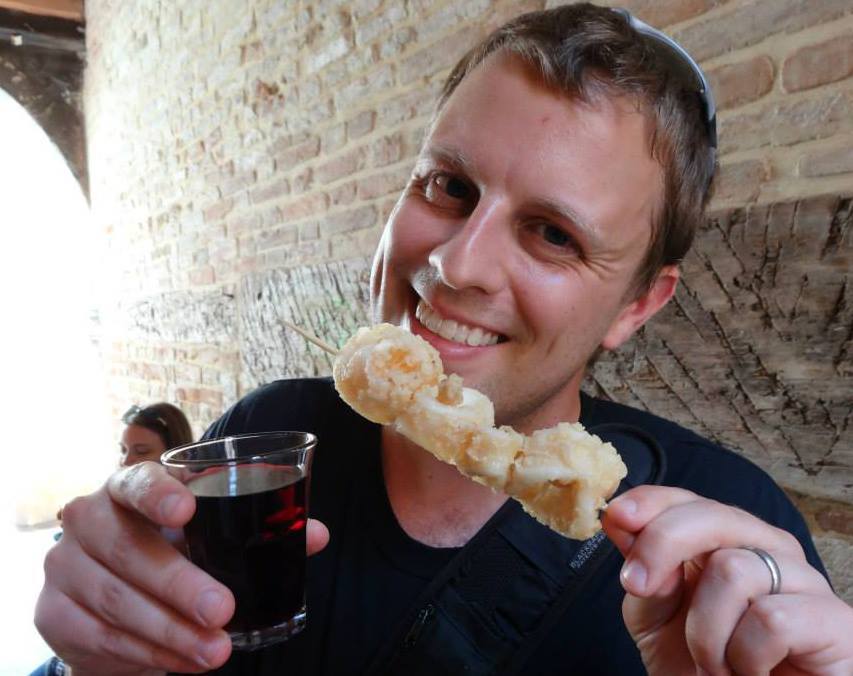
About the Author: Jeremy is a full-time travel writer based in Pittsburgh and primary author of this site. He has been to 70+ countries on five continents and seeks out new food, adventure activities, and off-the-beaten-path experiences wherever he travels.
